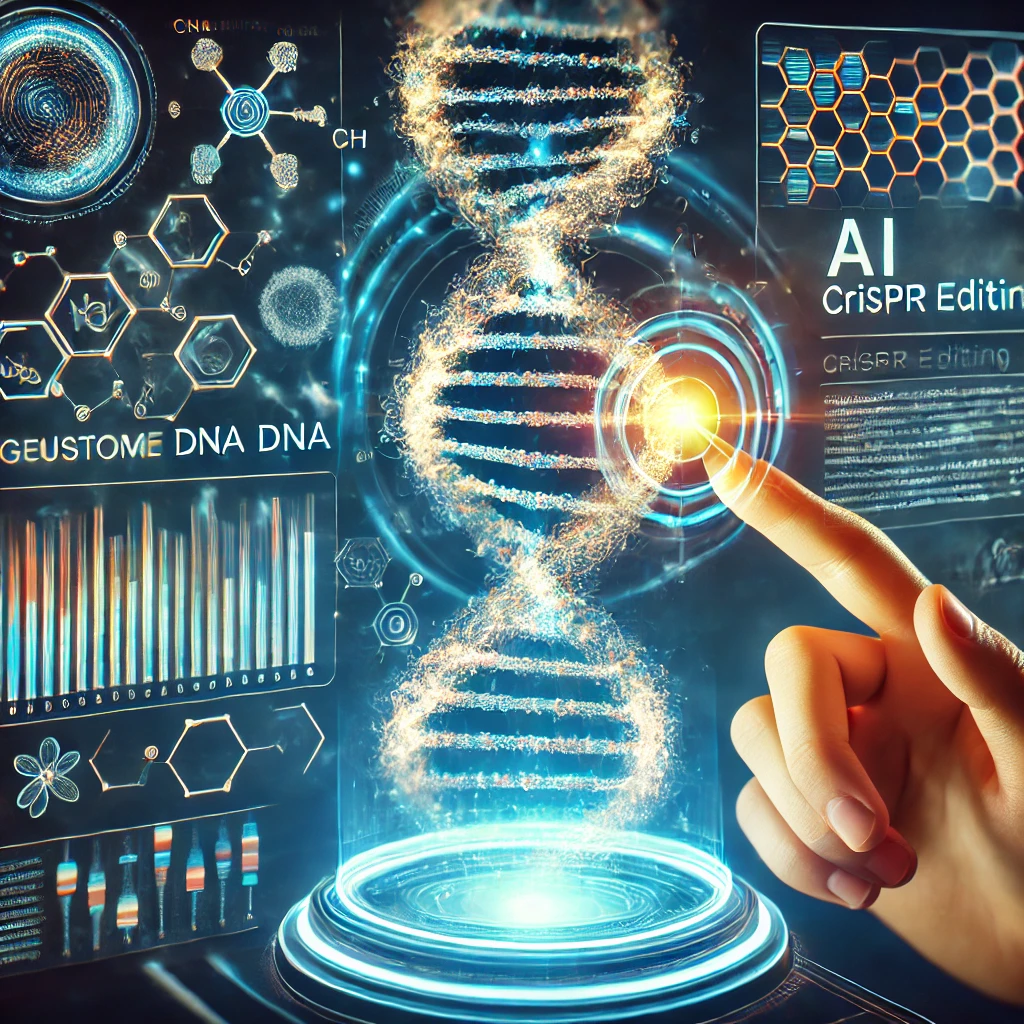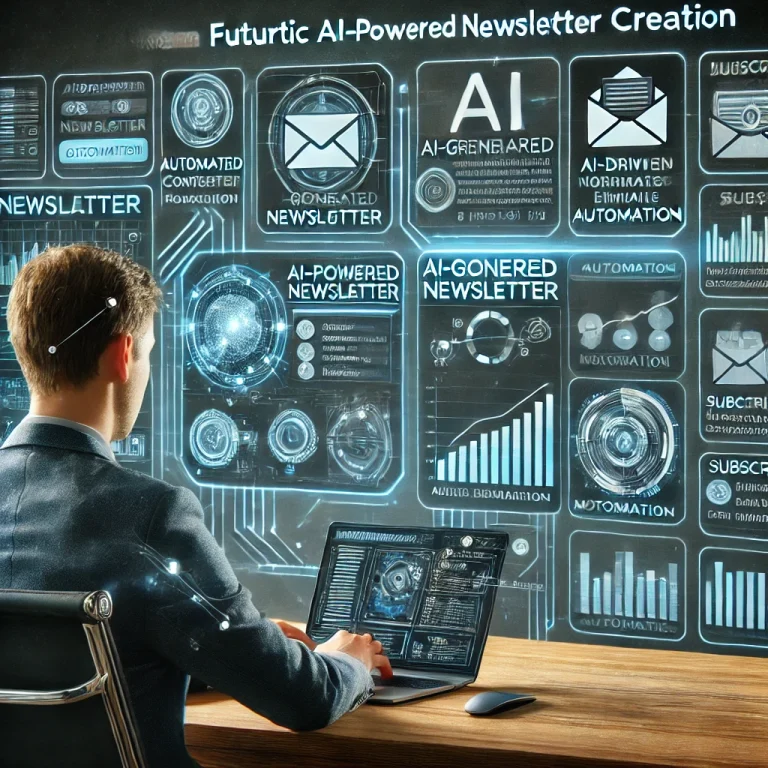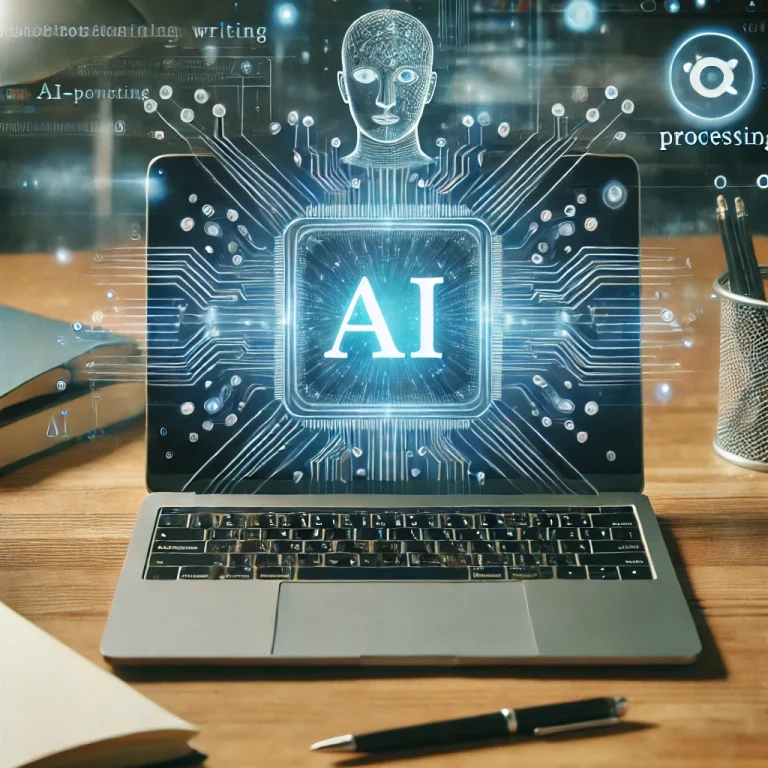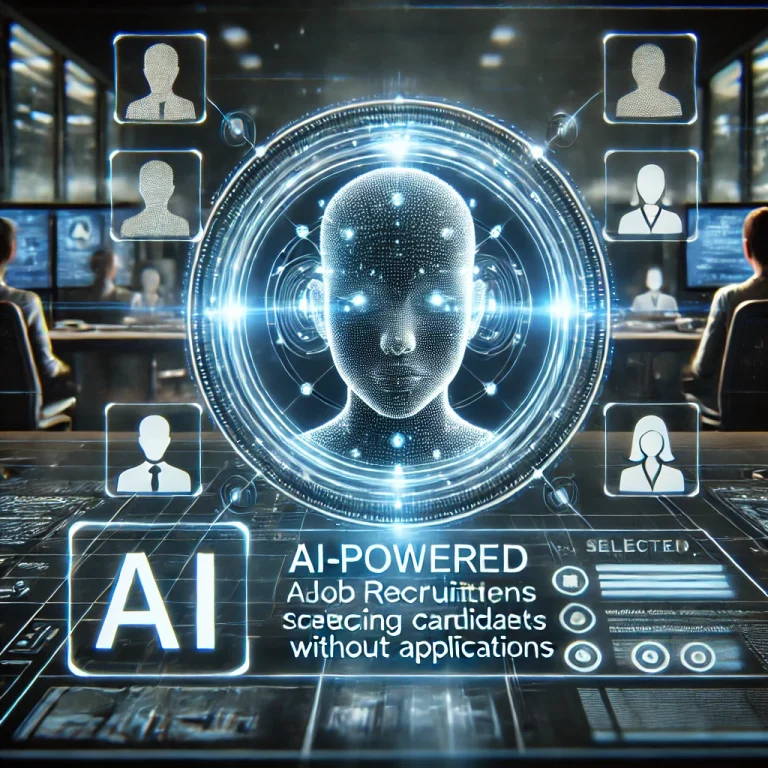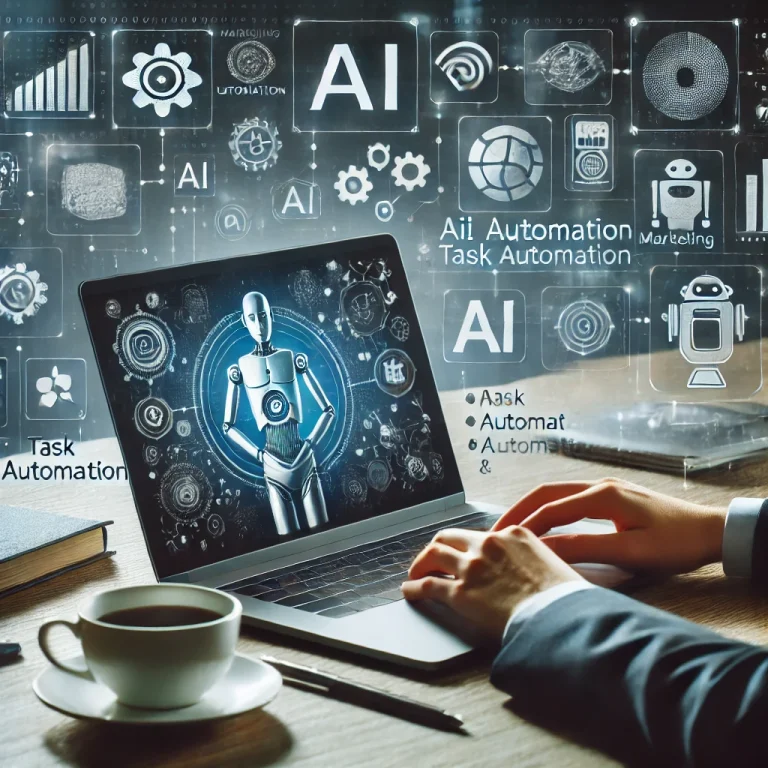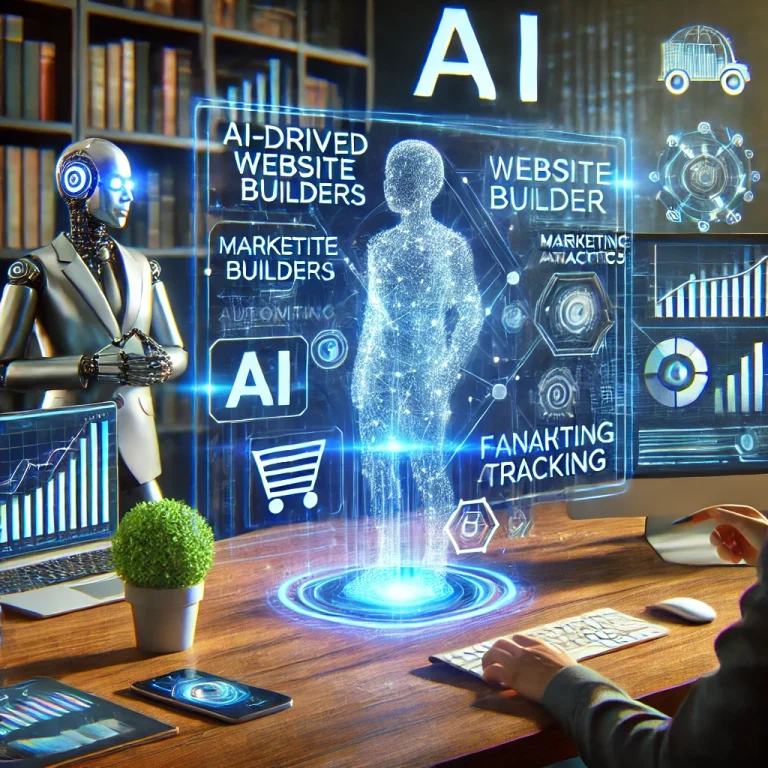AI-Generated DNA: Can AI Help Create Custom Human Genes?
Introduction
The fusion of Artificial Intelligence (AI) and genetic engineering is unlocking new frontiers in science. AI-driven algorithms are now being used to analyze, predict, and even design DNA sequences, raising a groundbreaking question: Can AI create custom human genes?
With advancements in CRISPR gene editing, synthetic biology, and AI-driven genomics, scientists are exploring the potential to modify human DNA for disease resistance, enhanced abilities, and even personalized traits. But how realistic is this vision? What are the benefits, risks, and ethical concerns surrounding AI-generated DNA?
This article explores how AI is transforming genetic engineering, the potential for custom DNA, and what the future holds for AI-designed humans.
How AI is Transforming Genetic Engineering
AI is revolutionizing genetics by making DNA sequencing, editing, and design faster and more precise. Here’s how:
1. AI-Powered DNA Sequencing & Analysis
✅ AI speeds up DNA sequencing, helping scientists decode human genomes faster.
✅ Machine learning algorithms detect genetic mutations and disease markers.
✅ AI predicts how genetic variations influence traits and diseases.
🚀 Example: DeepVariant by Google AI improves genetic data accuracy in DNA sequencing.
2. AI in Gene Editing (CRISPR & Beyond)
✅ AI enhances CRISPR gene-editing by predicting off-target effects and improving precision.
✅ AI designs customized CRISPR sequences to modify specific genes.
✅ AI-assisted gene editing may cure genetic disorders like sickle cell disease and cystic fibrosis.
🚀 Example: DeepCRISPR uses AI to optimize gene-editing accuracy and reduce unwanted mutations.
3. AI in Synthetic DNA & Custom Gene Design
✅ AI models design new DNA sequences to create synthetic genes.
✅ AI can simulate genetic changes before real-world application.
✅ Potential for personalized genes to enhance immunity, metabolism, or intelligence.
🚀 Example: Codex DNA uses AI to create synthetic genes for medical research.
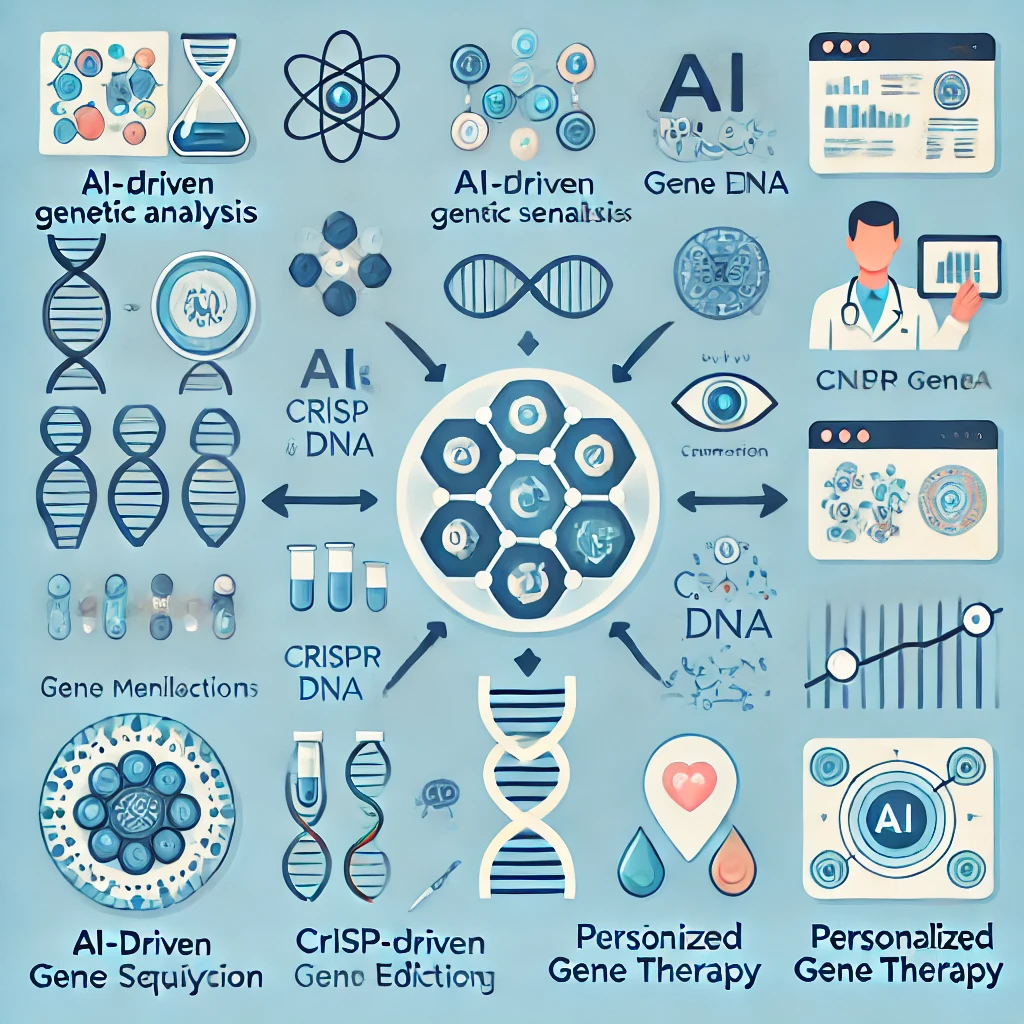
Can AI Create Custom Human Genes?
Potential Applications of AI-Generated DNA
If AI can generate custom DNA sequences, the implications are revolutionary. Here’s what might be possible:
✅ Disease-Resistant Humans
AI could design customized immune systems to resist viruses, cancers, and genetic disorders.
✅ Longevity & Anti-Aging Genes
AI-assisted gene therapies could slow aging and extend human lifespan.
✅ Enhanced Intelligence & Abilities
AI may help identify and modify genes linked to cognitive function, athletic performance, and creativity.
✅ Personalized Medicine
AI-designed genes could tailor treatments to individual genetic profiles, making medicine more effective.
🚀 Example: AI is already used in personalized cancer treatments based on DNA analysis.
Ethical Concerns & Risks
Despite its potential, AI-driven genetic engineering comes with serious ethical and safety concerns:
❌ Designer Babies & Genetic Inequality
🚫 Will AI-driven gene editing create a genetic divide between enhanced and non-enhanced humans?
❌ Unintended Consequences
🚫 Could AI-designed genes lead to unexpected mutations or harmful side effects?
❌ Biohacking & Misuse
🚫 Could rogue scientists or biohackers use AI to create illegal genetic modifications?
🚀 Example: The CRISPR baby controversy in 2018 raised concerns over unregulated genetic editing.
Future of AI in Genetic Engineering
Looking ahead, AI will continue to push the boundaries of genetic science: ✅ AI-powered gene therapies for treating genetic diseases.
✅ Fully synthetic organisms designed with AI-generated DNA.
✅ Ethical frameworks and regulations to prevent misuse of genetic AI.
✅ AI-driven human genome customization for medical advancements.
🚀 Example: AI is being integrated into human genome projects to map and modify DNA safely.
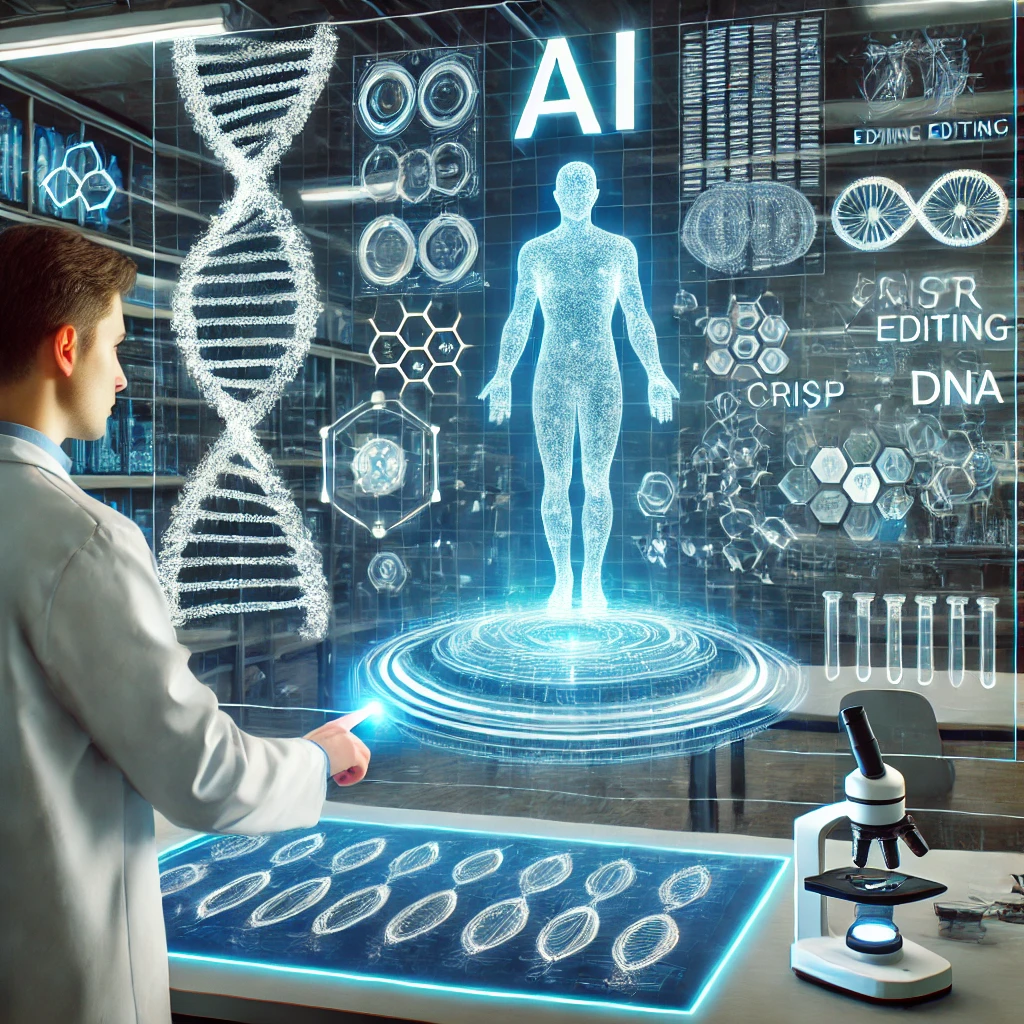
Conclusion: The Dawn of AI-Generated Humans?
AI is rapidly changing how we understand and manipulate DNA. While AI can assist in gene design, disease prevention, and synthetic biology, we are still far from fully customizable human genes. The future of AI-generated DNA will depend on scientific progress, ethical considerations, and legal regulations.
